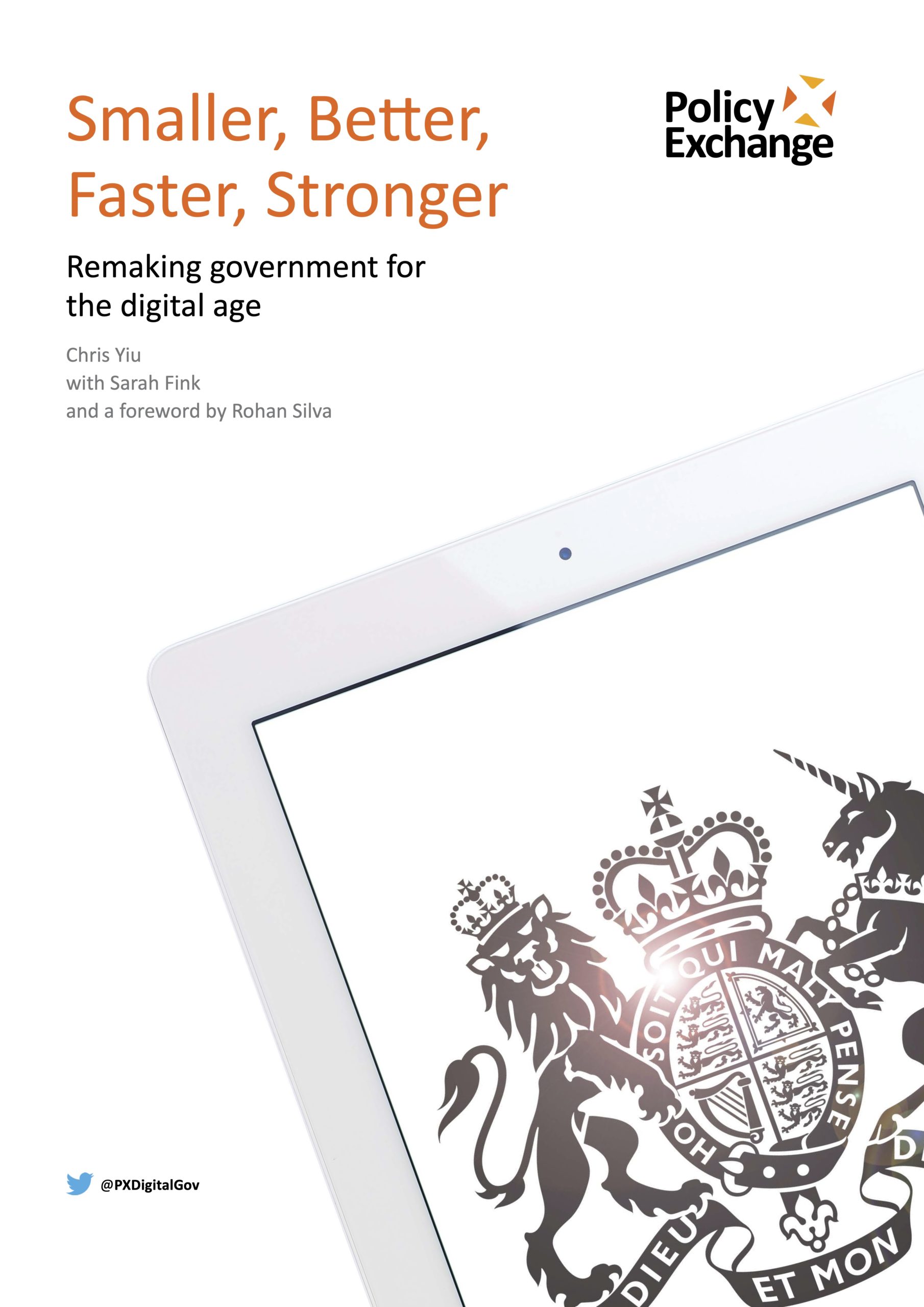
Smaller, Better, Faster, Stronger: Remaking government for the digital age
The government could save as much as £70 billion by 2020 if it adopted plans to eliminate paper and digitise its activities, work smarter with fewer staff in Whitehall, shop around for the best procurement deals, and accelerate the use of data and analytics.
Smaller, Better, Faster, Stronger shows how the government is wasting billions of pounds by relying on paper based public services. The Crown Prosecution Service prints one million sheets of paper every day while two articulated trucks loaded with letters and paper work pull into the Driving and Vehicle Licensing Authority (DVLA) every day. In order to complete a passport application form online, the Passport Office will print the form out and post it back for the individual to sign and send back.
In the near future, everything the government does should be online, unless a face-to-face interaction is essential. The UK is already nation of internet users with nearly 6 in 10 people accessing the internet via a smartphone. People expect even simple government services like tax returns or driving licences to be online. Fully transforming government with digital technologies could help close the gap between productivity in the public and private sectors.
The report also calls for stronger digital and data skills in Whitehall, making the point that senior officials will make or break this agenda by the interest they take in digital and their willingness to keep up with the times.
A survey of public sector staff carried out for the report found:
- Only half (51%) agree that their organisation’s board or leadership understands what tools and technology people need to do their jobs well.
- Over a third (37%) think that the technology available in their workplace is worse or much worse than the technology they have access to at home.
- Four in ten (39%) agree that fewer restrictions on using the web at work would increase their productivity.
The Coalition has made real efforts to improve the digital delivery of public services, not least GOV.UK, the new single website for government, which not only launched on time and on budget, but also went on to win the coveted 2013 Design of the Year award. Yet it must go further by implementing a number of recommendations including:
- Requiring government to issue and accept electronic proofs, so that people can do things digitally even when they are asked to provide proof of identity, address, qualifications, P45.
- Making electronic purchasing based on open standards the default for government departments
- Incorporating digital skills, data skills and scientific literacy more explicitly into the Civil Service competency framework, backed up with high quality training and development.
- Increasing interchange so that more senior staff have recent external experience, particularly in organisations that are at the cutting edge of digital developments.
- Creating a ‘LinkedIn for government’ to make it easier to find out who does what, and encourage more open policymaking and collaboration.
- Allowing more central government teams to spin out in partnership with high-tech start-ups and other partners, to access fresh thinking and boost innovation.
Videos
Testimonials
“This report recognises considerable progress and remarkable potential. We estimate shifting government transactions to digital channels can save £1.2billion by 2015. This will deliver better value for hardworking families and better public services designed around users’ needs. In future all Government services will be fast, convenient, agile and digital by default.”
Francis Maude, Minister for the Cabinet Office
“We’ve made huge progress since setting up GDS, working with other departments to release GOV.UK and start making services digital by default. But there is still significant potential to drive digital into everything the government does. This report is a timely reminder that our digital journey is only just beginning, and should inspire everyone in government to aim high when deciding where we go next.”
Mike Bracken, Executive Director at the Government Digital Service
“Policy Exchange’s work in this area is so vitally important – it will help ensure that this Government, and future Governments, are exposed to new provocations and ideas, and continually pushed to make public sector IT even more efficient, even more effective, and even more transformative for citizens.”
Rohan Silva, Senior Policy Advisor to the Prime Minister, 2010–13
“…a brilliant document … which really throws some pretty challenging questions.”
“…a very good read, some very profound predictions about how government needs to operate so I’d recommend everyone takes a good look at it.”
Mike Beaven, Transformation Programme Director at the Government Digital Service


